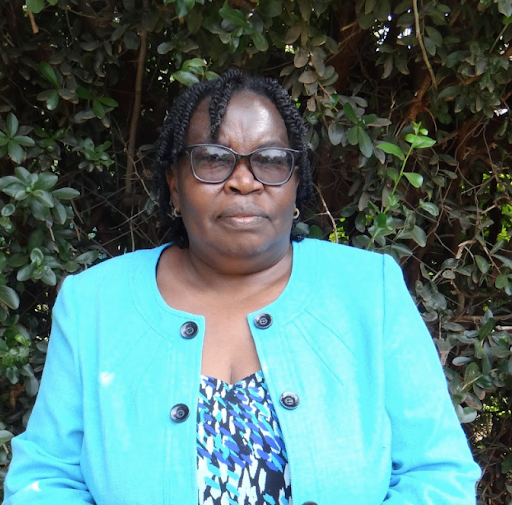Protecting Right to Education in Conflict and Crises: Perspectives from Kenya
Universal access to primary education is a fundamental human right of every child. The multiple benefits of education, which are well-recognized and extensively documented, have the potential to advance countries’ social and economic development. Nevertheless, instances arise where both internal and external obstacles hinder the distinctiveness of education, making it difficult to disentangle from the realm of politics.
Compounding Impacts of Conflicts and Crises
During periods of crisis or instability, the presence of political goodwill becomes imperative in the development and implementation of effective mitigation strategies. This goodwill should extend to policies that ensure equal educational opportunities for all children while simultaneously upholding both international and national educational benchmarks. However, political disputes and interethnic violence can occasionally offset the positive effects on the education sector, particularly where there are already inequalities in the distribution of educational institutions, infrastructure, and trained teachers.
If effective and timely mitigation of pandemics and violent conflicts is not achieved, secondary crises may arise, leading to adverse impacts on livelihoods and potential social and economic instability. The COVID-19 worldwide pandemic that occurred from 2020 to 2022 has been regarded as the most profoundly disruptive global disaster in human history. It affected a substantial number of individuals, with over 1.6 billion learners and 63 million teachers across over 190 countries being impacted (United Nations, 2020).
The COVID-19 pandemic has further intensified the existing crises in regions characterised by ongoing hostilities, exacerbating the challenges faced by these areas. Moreover, the prolonged closure of schools in these regions prior to the pandemic has made matters worse. Certain countries have faced prolonged episodes of violent conflict, resulting in long-lasting impacts on the availability and necessity of education for multiple generations. As per the findings of UNICEF, an estimated 27 million children residing in fragile environments were not enrolled in educational institutions prior to the onset of the pandemic.
Insights from Kenya
The closure of schools and institutions in Kenya in March 2020 due to the COVID-19 pandemic had a significant impact on the provision of inclusive and quality education for around 18 million Kenyan pupils. The COVID-19 pandemic's combined effects with ongoing conflicts in a number of Kenyan regions made the problem worse by preventing equal access to high-quality education. Consequently, a significant number of children were unable to attend school, with many girls being forced into early marriages and boys being compelled to engage in low-paying work. Furthermore, a significant number of children residing in conflict-ridden and marginalised environments were inadequately targeted by the several COVID-19 mitigation initiatives by the Ministry of Education.
Way forward
In accordance with the provisions outlined in Article 53 of the Kenyan Constitution (2010), it is stipulated that each child is entitled to the fundamental right of safeguarding against abuse, neglect, inhumane treatment, and punitive measures. Ensuring the safety and security of both educators and students within the educational setting is imperative in order to maintain an optimal learning environment. Failure to do so can impede the attainment of educational objectives at both the global and national levels.
Moreover, It is important to acknowledge that parents, learners, and teachers living in conflict-affected contexts possess different and unique needs that require ongoing support. Failure to address their demands would result in the perpetuation of disruptions that impede progress previously achieved in education.
Furthermore, in order to effectively maintain global and national educational objectives in areas affected by conflict, it is crucial that educational communities possess the necessary tools and strategies for disaster preparedness and conflict mitigation. Collaborating with education stakeholders residing or operating in areas affected by conflict would not only furnish the government with reliable data and invaluable assets to shape education policies, curriculum design, and teacher training initiatives but also foster the implementation of effective and efficient strategies for conflict resolution. Governments must also formulate conflict-sensitive strategies to mitigate the adverse effects of crises on the provision of educational services while simultaneously promoting the formulation of educational policies and programmes that will serve to preempt the occurrence of future crises.
 Loise Gichuhi is a consultant, economics of education and education in emergencies specialist and a senior lecturer at the University of Nairobi. Loise holds a PhD in Economics of Education (University of Nairobi) and a Master’s in Economics of Education (Kenyatta University). She leads Education in Emergencies at the University and is Kenya’s INEE Country Focal Point (2022-2024). Loise has extensive experience and expertise in education policy, planning, curriculum development, EIE programming, implementation, monitoring, and evaluation. Her academic and research interests are in both quantitative and qualitative research methodologies. Loise has recently consulted for COMESA, Equal Measures 2030/FAWE, Porticus-Africa, INEE, and UNESCO IIEP and is finalising a five-year Ministry of Education/World Bank project (2019-2023). She does community work in marginalized counties and informal settlement communities through a local NGO, Education Bridge-Africa. She speaks Kikuyu, Kiswahili and English
Loise Gichuhi is a consultant, economics of education and education in emergencies specialist and a senior lecturer at the University of Nairobi. Loise holds a PhD in Economics of Education (University of Nairobi) and a Master’s in Economics of Education (Kenyatta University). She leads Education in Emergencies at the University and is Kenya’s INEE Country Focal Point (2022-2024). Loise has extensive experience and expertise in education policy, planning, curriculum development, EIE programming, implementation, monitoring, and evaluation. Her academic and research interests are in both quantitative and qualitative research methodologies. Loise has recently consulted for COMESA, Equal Measures 2030/FAWE, Porticus-Africa, INEE, and UNESCO IIEP and is finalising a five-year Ministry of Education/World Bank project (2019-2023). She does community work in marginalized counties and informal settlement communities through a local NGO, Education Bridge-Africa. She speaks Kikuyu, Kiswahili and English
 Jackson Mwai is a high school teacher at Kenya High School. He holds a Bachelor degree in Education science. Currently Pursuing a Master’s Degree in Education at The University of Nairobi. His area of specialization is Education in Emergencies.
Jackson Mwai is a high school teacher at Kenya High School. He holds a Bachelor degree in Education science. Currently Pursuing a Master’s Degree in Education at The University of Nairobi. His area of specialization is Education in Emergencies.



